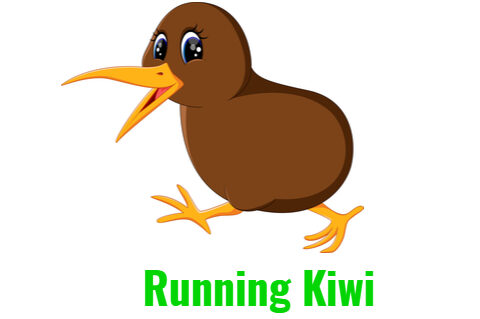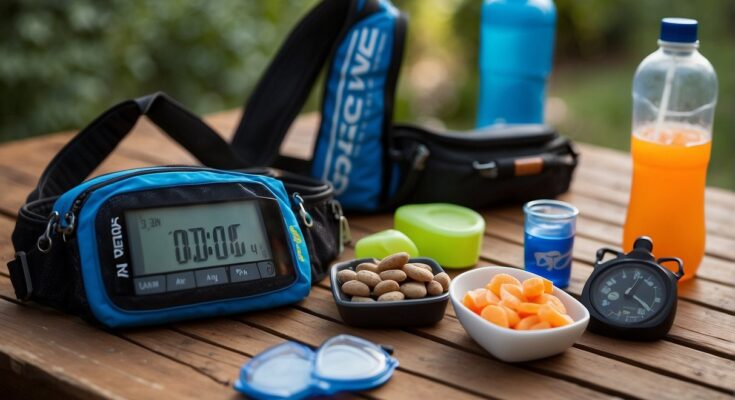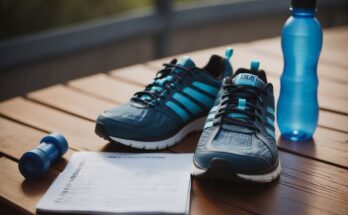Ultrarunning poses a unique set of challenges, particularly when it comes to the necessary nutrition and hydration strategies required to sustain such prolonged physical exertion. Proper fueling during these endurance events is critical, not just for optimal performance but also to prevent the potentially severe consequences of dehydration and energy depletion. A carefully crafted plan for both hydration and nutrition is paramount for any runner looking to tackle the distances that are synonymous with ultramarathons.

The specifics of an effective fueling strategy can vary greatly from one runner to another due to the highly individualized nature of endurance sports. Nevertheless, certain foundational principles remain constant. These include understanding the importance of maintaining electrolyte balance, recognizing the signs of both dehydration and over-hydration, and knowing what types of foods can provide sustained energy throughout the race. Additionally, runners must consider their nutrition both before and after events to ensure a full recovery, while also adapting their strategies to the unique environments and conditions they will face on race day.
Key Takeaways
- Proper hydration and nutrition are essential for ultrarunning performance and safety.
- Fueling strategies must be tailored to individual needs and race conditions.
- Pre- and post-race nutrition are crucial for comprehensive race preparation and recovery.
The Importance of Nutrition for Ultrarunners
Proper nutrition is critical for ultrarunners to sustain energy, support muscle recovery, and enhance performance during long-distance runs. Tailored nutrition strategies help in maximizing the potential of an ultrarunner’s physiology.
Macronutrients and Their Roles
Carbohydrates are the primary source of energy for ultrarunners, as they are converted into glucose, which fuels muscle activity and brain function. The recommended intake is 6-10 grams per kilogram of body weight. Proteins play a crucial role in repair and recovery of muscles, with an advised intake of 1.2-2.0 grams per kilogram of body weight daily. Fats are important for long-duration events, providing a dense energy source and supporting cellular functions. Ultrarunners should aim for a balance, incorporating high-quality sources of these macronutrients into their diets.
- Carbohydrates: Bread, pasta, rice, energy gels, bars
- Protein: Meat, eggs, dairy, legumes, protein bars
- Fats: Nuts, seeds, avocado, oils
Understanding Energy Sources
Throughout an ultramarathon, a runner’s body taps into different energy sources depending on intensity and duration. Initially, the body uses stored carbohydrates (glycogen), but as the race progresses, it increasingly relies on fats. Maintaining a consistent intake of calories from a mix of carbohydrates and fats helps prevent energy dips and maintains performance. Ultrarunners typically consume 200-300 calories per hour from a combination of solid foods like bars and more easily digestible forms such as gels.
The Science Behind Fueling Strategies
Fueling strategies during an ultra event are developed from scientific understanding of how the body utilizes nutrients over extended periods of exertion. Staying ahead of hunger and dehydration by consuming small, regular amounts of food and fluids can prevent the depletion of glycogen stores. Hydration with water and electrolytes is essential for nutrient transport and muscle function. Every ultrarunner may have a unique fueling strategy that works best for them, considering the duration of the event, the terrain, and individual metabolic responses.
- Hydration: Water, electrolyte drinks
- Fueling: Regular, small portions of food, and fluids
Hydration Fundamentals

Proper hydration is crucial for ultrarunners, as it involves maintaining fluid balance and electrolyte levels, which are both essential for peak performance. An understanding of electrolytes, sweat rate, and the impacts of dehydration is key.
Electrolytes and Their Function
Electrolytes are minerals in the body’s fluids, critical for conducting electrical impulses that drive muscle contractions and nerve impulses. They include sodium, potassium, calcium, magnesium, and chloride. During an ultramarathon, maintaining electrolyte balance is paramount to prevent cramping, fatigue, and more serious health issues.
Sodium is the primary electrolyte lost in sweat and plays a pivotal role in:
- Maintaining fluid balance
- Absorbing and transporting nutrients
- Muscle function
- Nerve function
Potassium helps with:
- Muscle contractions
- Heart rhythm
- Fluid balance
Calcium and magnesium are important for:
- Bone health
- Muscle contractions
- Nerve signaling
Chloride works closely with sodium to:
- Maintain fluid balance
- Aid in digestion
Calculating Individual Sweat Rate
Calculating individual sweat rate involves measuring body weight before and after exercise, along with the volume of fluid consumed during the activity. This information allows runners to tailor their hydration strategy to their personal needs.
To calculate sweat rate:
- Weigh in pre-run (without clothes for accuracy)
- Run for a fixed time at race intensity
- Record amount of fluid consumed (if any)
- Weigh out post-run (without clothes)
- Subtract post-run weight from pre-run weight, convert to oz or mL
- Add to this number the volume of fluid consumed
- Divide by the number of hours run to find sweat rate per hour
Dehydration and Performance
Dehydration occurs when fluid losses exceed fluid intake, leading to a deficit in the body’s water balance. It can significantly impair an ultrarunner’s performance and can lead to:
- Increased heart rate
- Lower blood pressure
- Reduction in blood volume
- Increased core temperature
- Decreased sweat rate
- Higher perception of effort
These physiological changes underline the importance of preventing dehydration. A common guideline is to avoid surpassing a 2% body weight reduction from water loss during exercise, as this level of dehydration can begin to impairment performance.
Pre-Race Preparation

Proper pre-race preparation for an ultramarathon is crucial, especially focusing on nutrition and hydration strategies in the days leading up to the race. It allows the body to maximize its energy reserves and maintain optimal fluid levels for endurance performance.
Nutrition Prior to Race Day
Athletes should start carb-loading two to three days before the event to maximize glycogen stores. Consuming 4-7 grams of carbohydrates per kilogram of body weight daily is recommended. Solid sources of carbohydrates include:
- Rice
- Pasta
- Bread
- Oatmeal
- Potatoes
- Quinoa
Hydration Strategy Before the Start
Hydration before an ultramarathon is not simply about drinking water; it involves a calculated hydration strategy. Runners should increase their fluid intake in the 48 hours prior to the race, aiming for urine that is light in colour. Electrolytes, particularly sodium, should not be neglected; they are essential for fluid retention and preventing hyponatremia. A suggested intake pattern might look like this:
- 500 mL of water with electrolytes upon waking
- 250 mL every hour leading up to the race
Note: It’s important for runners to not overhydrate, as this can lead to dilution of electrolytes in the body.
In-Race Fueling Techniques
Effective in-race fueling strategies are imperative for ultrarunners to maintain energy levels and performance. This section outlines key methodologies to optimize nutrition intake during a race.
Timing Your Nutrition Intake
An ultrarunner’s fueling plan hinges on consistent energy intake. They should aim to consume 30-60 grams of carbohydrates per hour to sustain their pace. Start fueling early in the race, ideally within the first 30-45 minutes, and continue at regular intervals. This helps avoid depletion of glycogen stores and energy crashes.
- Begin Early: Start within the first 30-45 minutes of the race.
- Regular Intervals: Consume carbohydrates every 20 minutes.
- Monitor Tolerance: Adjust the plan based on what the stomach can handle.
Utilizing Aid Stations Effectively
Aid stations are critical checkpoints for fuel replenishment. Runners should plan their race strategy around the location of these stations. Quick and efficient visits to aid stations can help maintain an ultrarunner’s pace and energy.
- Plan Ahead: Know the location and offerings of each station beforehand.
- Assess Needs: Quickly identify what the body requires—hydration or calories.
- Hydration: Choose sports drinks to replenish both fluids and electrolytes.
Real Food vs. Engineered Options
Ultrarunners have to decide between real food and engineered nutrition like gels, chews, and bars. Real food can be more satiating and provide a psychological boost, whereas engineered options are convenient and easy to digest on the go.
- Real Food: Bananas, boiled potatoes, or sandwiches for solid sustenance.
- Engineered Options: Easy-to-carry gels, chews, or bars for quick absorption.
- Balance: Find a mix that satisfies both psychological and physiological needs.
Ultramarathon-Specific Nutritional Concerns
In ultramarathon racing, athletes face unique nutritional challenges, such as gastrointestinal distress and the need to adapt their fueling strategies to the varying terrain and weather conditions.
Digestive Issues and Solutions
Gastrointestinal distress is a common issue for ultrarunners, which can manifest as nausea or cramping. To mitigate these concerns:
- Familiar Foods: Stick to well-tolerated foods that have been tested during training.
- Hydration: Balance electrolyte intake with fluids to prevent cramping.
- Timing: Consume smaller, frequent meals and snacks to give the digestive system time to process.
- Simplicity: Opt for simple carbohydrates that are easier to digest.
Example Meal Timing Strategy:
| Time to Next Aid Station | Suggested Intake |
|---|---|
| 1 hour | Gel or chews with water |
| 2-3 hours | Small sandwich, diluted sports drink |
Adapting Nutrition to Terrain and Weather
Nutritional needs vary with terrain and weather demands:
- Mountainous Terrain: Increase calorie intake with a focus on carbohydrates for sustained energy.
- Heat: Prioritize fluids to stay hydrated and cool. Add salt tabs to replenish lost electrolytes.
- Cold: Consume more fats for insulation and energy.
Terrain-Specific Nutrition Tips:
- Flat and Fast: Continuous, high-carbohydrate intake.
- Technical Trails: Nutrition that is easy to consume on the move.
The goal is to maintain balanced energy levels and minimize nutritional problems that can impede an ultrarunner’s performance.
Post-Race Recovery and Nutrition
After completing an ultramarathon, an athlete’s attention should immediately turn to recovery, focusing on replenishing glycogen stores, mending muscle breakdown, and reducing fatigue. Optimal nutrition and hydration are pivotal in this phase.
Effective Recovery Foods and Drinks
An ultrarunner’s primary goal post-race is to replenish glycogen stores. Carbohydrate-rich foods play a key role in this process. Immediate post-race nutrition should include:
- Simple carbohydrates: fruits like bananas or applesauce for quick glycogen replenishment.
- Complex carbohydrates: whole-grain bread, rice, or pasta to sustain recovery.
Hydration is equally crucial. Runners should restore fluid levels, taking care to include electrolytes which are often depleted during the race. A recovery drink containing a blend of carbohydrates, protein, and electrolytes can serve as an effective tool to begin the rehydration process.
Dealing with Muscle Breakdown and Fatigue
Muscle protein breakdown occurs during ultramarathons, making protein intake essential for recovery. Ideal sources include:
| Protein Source | Benefit |
|---|---|
| Whey protein shake | Fast-absorbing for quick muscle repair |
| Eggs | Complete protein with all essential amino acids |
| Greek yogurt | High in protein and probiotics |
A balance of protein and carbohydrates is vital for muscle repair and to combat fatigue. Anti-inflammatory foods, such as salmon or tart cherries, can help alleviate muscle soreness. Supplements with branch-chain amino acids (BCAAs) might also be included to support muscle recovery.
Rest and sleep should not be underestimated; they are critical components of handling fatigue and aiding in the body’s natural recovery processes.
Understanding Supplementation
Supplement use in ultrarunning can optimize energy levels and replenish vital nutrients. It’s crucial for ultrarunners to discern when supplementation is beneficial and how to choose the appropriate ones for their specific endurance needs.
When to Use Supplements
Supplements should be considered when one’s dietary intake may not meet the energy demands of ultrarunning. Energy gels, chews, and bars are useful during long runs when sustaining high energy levels is imperative. Ultrarunners may also require electrolyte supplements during extensive sessions to maintain hydration and prevent cramps, as they replenish sodium, potassium, magnesium, and calcium lost through sweating.
- Pre-Run: Supplements containing caffeine can enhance alertness before running.
- During Run: Carbohydrate supplements provide a quick energy source.
- Post-Run: Protein supplements aid in recovery and muscle repair.
Choosing the Right Supplement for Your Needs
Selecting the right supplement requires an assessment of one’s individual needs, the intensity of the exercise, and the duration of the ultrarun. When considering supplements, it’s important to evaluate the type, quality, and concentration of ingredients. For instance, an ultrarunner may need vitamin D supplementation if they train indoors frequently, or iron if lab tests show a deficiency that can’t be corrected by diet alone.
Below is a basic guide to help choose the right supplementation:
| Supplement Type | Benefit | Usage Timing |
|---|---|---|
| Carbohydrate | Quick energy source | Pre/During Run |
| Protein | Muscle repair and recovery | Post-Run |
| Electrolytes | Rehydration and balance of electrolyte levels | During/After Run |
| Vitamins | General health support | Daily as needed |
Ultrarunners should consult with a healthcare professional or a sports nutritionist to tailor a supplementation strategy that meets their specific training and recovery needs. It’s also essential to use supplements from reputable brands that adhere to safety and quality standards.
Personalizing Your Hydration and Fueling Plan
Every ultrarunner is unique, requiring a tailored approach to hydration and fueling that addresses individual needs and metabolic demands. Achieving optimal energy levels during an ultramarathon relies on a plan that’s both scientific and practical, fine-tuned over many training runs.
Consulting with a Sports Nutritionist
Working with a sports nutritionist can provide a foundation for a personalized hydration and fueling strategy. They assess an athlete’s metabolism, energy usage, and nutritional requirements to develop a plan that supports their endurance and performance goals. This individualized approach can help avoid gastrointestinal distress and maintain a steady energy supply.
Experimenting During Training Runs
Ultrarunners should use training runs as opportunities to test different hydration and nutrition methods. By experimenting with types and quantities of fluids and foods, they learn what sustains their energy, improves recovery, and feels comfortable in the stomach. This hands-on experience is crucial for customizing a race-day strategy.
Training Run Log Sample:
| Date | Distance | Hydration Intake | Fuel Intake | Energy Levels | Digestive Note |
|---|---|---|---|---|---|
| 01/02/2024 | 30 miles | 500ml per hour | Gels, nuts | Stable | No issues |
| 08/02/2024 | 50 miles | 750ml per hour | Bars, fruit | High | Slight discomfort |
Tailoring to Individual Metabolic Needs
The metabolic needs of ultrarunners vary greatly. Some may require more carbohydrates to maintain high energy levels, while others might rely more on fats. Monitoring and adjusting food and fluid intake according to these needs during training runs will lead to a successful personal nutrition plan for race day. This ensures that each runner maintains their energy balance and stays properly hydrated throughout the event.
Advanced Techniques and Considerations
To excel in ultrarunning, athletes must employ strategies that address the specific challenges of extreme endurance events. Advanced techniques in hydration and fuelling are underpinned by current scientific understanding and innovative practices.
Adapting to Long-Distance Challenges
For ultrarunners tackling races like the Western States 100, adapting their bodies to efficiently handle long-distance efforts is crucial. Hydration management is tailored to individual needs, often requiring a dynamic approach to electrolyte intake. Runners may track sweat rates and sodium loss to determine specific replenishment rates, which can differ based on climate, altitude, and personal physiology.
Fueling strategy must also reflect the extended duration of an ultramarathon. Runners often consume a mix of simple carbohydrates for quick energy and complex carbohydrates for sustained fuel. Caloric intake is balanced to avoid gastrointestinal distress while ensuring adequate energy to maintain endurance. This strategy includes:
- Pre-race: Loading with easily digestible carbs.
- During race: Consistent intake of small quantities of food.
- Post-race: Recovery nutrients to replenish glycogen stores and repair muscle.
Science and Innovation in Ultrarunning Nutrition
Scientific research continually propels ultrarunning nutrition forward. Innovations include the development of highly bioavailable energy gels and chews, alongside more natural and whole-food options. These nutrition products are rigorously tested for optimal digestion and absorption rates during sustained effort.
Recent studies have focused on the timing of intake and its impact on performance. Precision nutrition plans take into account the race distance and terrain variability. For instance, ultrarunners may employ:
- Carbohydrate Periodization: Adjusting carb intake according to intensity and effort.
- Fat Adaptation: Training the body to utilize fat as a primary fuel source for endurance, while still making use of carbohydrate stores.
These considerations form a part of an ultrarunner’s comprehensive strategy, aimed at optimizing performance through science-backed techniques and cutting-edge nutritional innovation.
Keeping a Healthy Diet Beyond Racing
Maintaining a nutritious diet is crucial for ultrarunners, not only during competitions but also in everyday life. This section focuses on incorporating whole foods for long-term health and achieving balance and moderation in daily eating habits.
Incorporating Whole Foods for Long-Term Health
Ultrarunners benefit greatly from integrating whole foods into their diet to replenish nutrients and maintain energy levels. Whole grains, for example, provide a steady source of complex carbohydrates essential for sustained energy. Consuming a variety of fruits and vegetables ensures a broad intake of vitamins, minerals, and antioxidants, supporting overall well-being and recovery.
- Whole Grains: Quinoa, brown rice, and oatmeal.
- Fruits: Berries, apples, and bananas.
- Vegetables: Leafy greens, carrots, and beets.
Including healthy fats in one’s diet, such as those found in avocados, nuts, and seeds, is important for joint health and to reduce inflammation. Fish, especially fatty varieties like salmon, provide omega-3 fatty acids that are beneficial for heart health and cognitive function.
Balance and Moderation in Everyday Eating
For ultrarunners, balance and moderation in their diet are key to year-round performance and health. It’s about eating nutrient-dense foods without overindulging in any one food group. They should aim for a balanced plate that includes:
- Proteins: Lean meats, fish, and legumes.
- Carbohydrates: Whole grains and starchy vegetables.
- Fats: Nuts, seeds, and olive oil.
A balanced approach encompasses not just the types of food consumed but also their quantity and quality. Ultrarunners should focus on eating enough to support their training while avoiding excess calories that do not provide nutritional benefit. By practicing moderation, they can maintain a healthy weight and reduce the risk of diet-related diseases.




